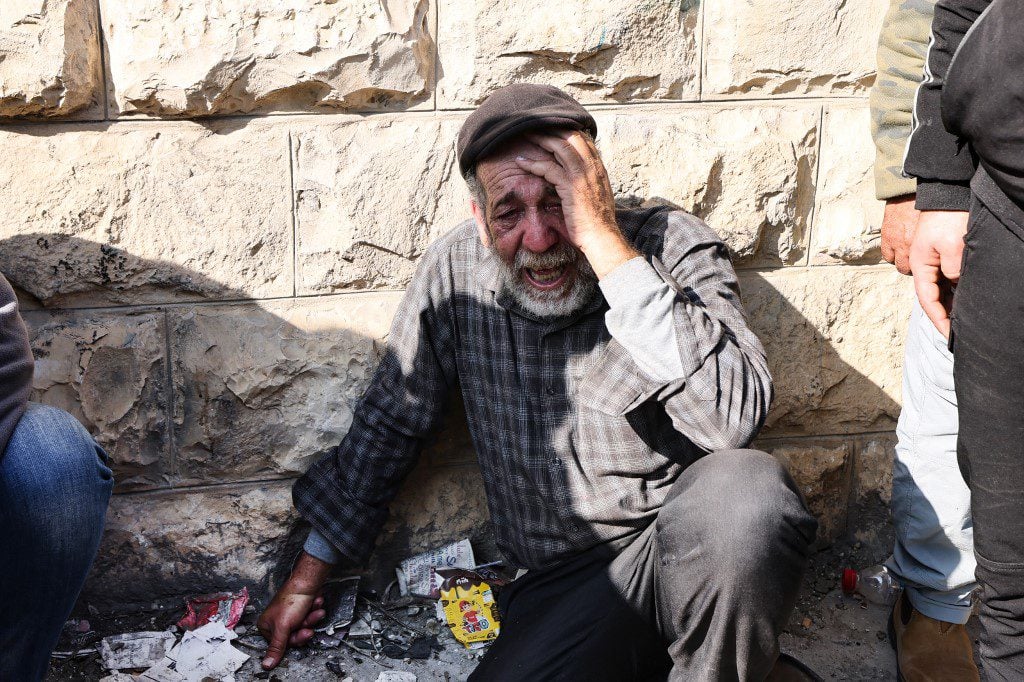Reasons why the international community bears part of the responsibility for the conflict between Israel and Palestinians.

Majed Kayali
Against the backdrop of the Jenin camp’s raid, the international community bears part of the responsibility for the conflict between Israel and the Palestinian people.
The raid, carried out by Israeli occupation forces, left nine young men dead and injured dozens. It coincided with the bulldozing of dozens of houses in the camp. The events were not incidental but have become a routine through which Israel consolidates its occupation and settlements and silences the Palestinians.
Notably, Israel killed 35 Palestinians in January 2023 alone. In 2022 it killed 230 Palestinians, with the exception of the periods when Israel waged wars on Gaza, the highest annual murder count since 2005.
In return, one day after the Jenin camp massacre, a young Palestinian man shot Israeli settlers, killing eight Israelis in a settlement adjacent to Eastern Jerusalem. The reason is clear; occupation generates resistance, as history has proven.
Resistance is also a natural response to Israel’s aggressive and discriminatory settlement policies. The lack of prospects for a political solution and Israel’s evasion of all reconciliation agreements with the Palestinians present further catalysts for resistance.
The Palestinians exhausted all available and possible ways to retrieve their rights, including armed struggle, missile wars, explosive attacks, uprisings and negotiations.
Accepting a Palestinian state on a 22 per cent portion of historic Palestine was one of these paths. Israel, however, blocked all options, taking advantage of the lack of international and Arab support for Palestinian rights.
From the moment Mahmoud Abbas assumed his position as the head of the Palestinian Authority until 2022, 7470 Palestinians have been killed by Israeli bullets and bombardments, meaning that approximately 484 Palestinians were murdered annually. This statistic includes those residing in the West Bank and Gaza and those martyred in the Israeli wars on besieged Gaza since 2006.
Deaths on the Palestinian side far outnumber those on the Israeli side as a result of Israel’s immense armed force. In Israel’s five wars on the Gaza Strip between 2008 and 2022, Palestinian victims totalled 4052 compared to 98 Israeli casualties, representing a casualty ratio of forty-one to one. It is worth mentioning that the ratio was four to one during the second Intifada.
Israel’s method of unleashing its army against the Palestinians has run counter to the Palestinian leadership’s approach. The Palestinian leadership continued reconciling and coordinating security with the Israeli authorities in an attempt to appease them and earn their trust.
Israel, however, continued to undermine the Palestinian leadership and avoid reconciliation. Moreover, it deliberately raided Palestinian cities, villages and camps in the 1967-occupied Palestinian lands.
The frail current Palestinian state of affairs and the absence of an Arab and international framework for Palestinian rights are among the factors that explain Israel’s eagerness and aggressiveness in killing Palestinians, bulldozing their homes and settling on their lands.
These factors also helped Israel evade all reconciliation agreements. If we consider the tendencies of Netanyahu, Ben Gvir and Smotrich any indication, they also contributed to Israel’s indifference to its appearance as a colonial, racist, and religious state.
Furthermore, Israel believes it holds a solid position of power. In the Arab world, Israel serves as a deterrence to the Iranian clout. At the same time, internationally, it derives this belief from its scientific and technological progress, explaining its close relations with Russia, China and India.
In his article published on 22 January 2023 on Israelhayom, Eyal Zisser wrote, “Israel’s regional and international situation is good and gives it an excellent opening position for the future.
As for the Arab countries, they stand in line to develop ties with Israel. Of course, the Palestinians remained, but that is exactly the point. Our situation is good and gives us freedom of action that we did not witness before.”
As a result of the internal Palestinian division and the absence of international and Arab support, the Palestinians’ situation is more dire and complex than ever before on all levels, internally, regionally and internationally. Consequently, the Palestinians are confronting Israel with all its arrogance and extremism that denies the Palestinians their basic rights.
Israel is the cause of resistance. While the Palestinian leadership did everything to reconcile, Israel has only stuck to its security solution, oppressing the Palestinians, violating their dignity and usurping their rights.
History tells us that resistance is a natural and legitimate response. Moreover, all international and humanitarian laws guarantee the right to resist occupation, injustice, land confiscation and violation of sanctities.
In one way or another, occupation and oppression generate more resistance. There must be a solution to this vicious cycle, at least in accordance with UN and Security Council resolutions, by responding to the Palestinians’ demands for their rights.
Similar to the Ukrainian crisis, it is an international responsibility. For an acceptable and a condemned occupation to coexist is irrational. The Russian occupation of parts of Ukraine required a courageous moral response from the international community, and the same is necessary to confront Israel’s occupation of even larger shares of Palestinian lands.
DISCLAIMER
The opinions expressed in this publication are those of our writers. They do not purport to reflect the opinions or views of Fanack or its Board of Editors.


